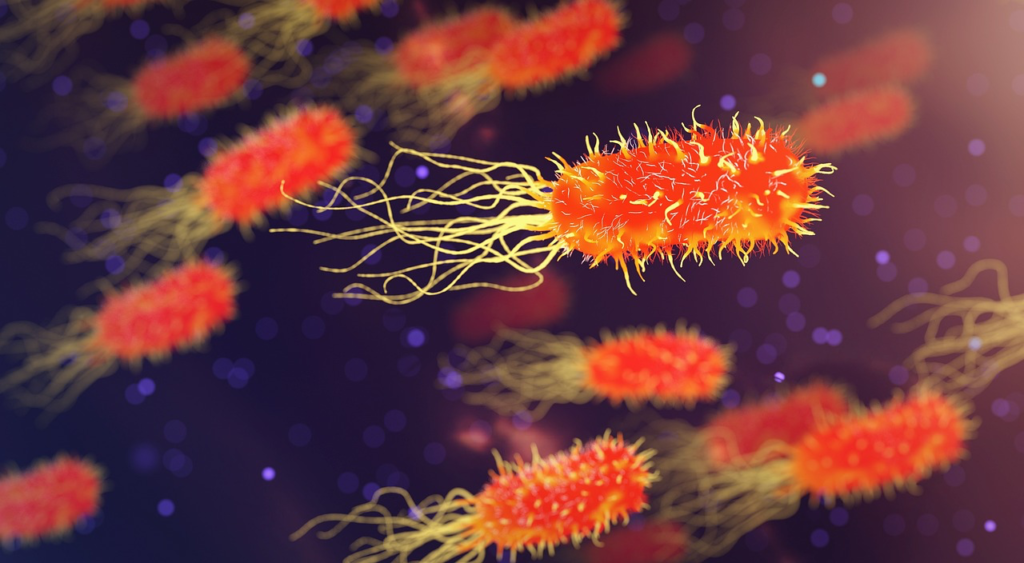In this article, we will explore how the body burns fat and the different factors that contribute to weight loss. We will delve into the different types of fat, the role of metabolism, and the benefits of a healthy lifestyle. By the end of this article, you will have a better understanding of the science behind weight loss and how you can achieve your goals.
Table of Contents
Understanding Body Fat
Metabolism and Energy Expenditure
The Role of Diet and Exercise
Hormones and Weight Loss
Genetics and Weight Loss
Sleep and Weight Loss
Conclusion
Understanding Body Fat
Before we can understand how the body burns fat, it’s important to understand the different types of body fat. There are two main types of body fat: subcutaneous fat and visceral fat.
Subcutaneous fat is the fat that is found just beneath the skin. This is the fat that you can pinch with your fingers. While excess subcutaneous fat can be a cosmetic concern, it’s generally not considered as dangerous to health as visceral fat.
Visceral fat, on the other hand, is the fat that is located deep in the abdomen, surrounding the internal organs. This type of fat is associated with a higher risk of many health problems, including type 2 diabetes, heart disease, and some cancers.
When the body needs energy, it can either use the glucose (sugar) that is circulating in the bloodstream or it can break down stored fat to release energy. The body’s ability to break down fat for energy is key to weight loss.
Metabolism and Energy Expenditure
Metabolism refers to all the chemical reactions that occur in the body to keep it functioning. One of the key components of metabolism is energy expenditure, or the amount of energy the body uses to maintain its basic functions and perform physical activity.
There are three main components of energy expenditure:
- Basal metabolic rate (BMR): This is the amount of energy the body uses to maintain basic functions like breathing, circulation, and maintaining body temperature.
- Physical activity: This is the energy the body uses to move and perform physical activity, from walking to running to lifting weights.
- Thermic effect of food (TEF): This is the energy the body uses to digest, absorb, and metabolize the food we eat.

To lose weight, you need to create a calorie deficit, which means you need to burn more calories than you consume. This can be achieved by increasing physical activity, reducing calorie intake, or a combination of the two.
The Role of Diet and Exercise
Diet and exercise are two of the most important factors when it comes to weight loss. The basic principle of weight loss is to burn more calories than you consume. This can be achieved by reducing calorie intake through diet and increasing calorie expenditure through exercise.
When it comes to diet, it is important to focus on whole, nutrient-dense foods such as fruits, vegetables, lean protein, and whole grains. These foods are low in calories and high in nutrients, making them ideal for weight loss. Additionally, they can help keep you feeling full and satisfied, reducing the likelihood of overeating.

Exercise is also an essential component of weight loss. Exercise helps burn calories, increase muscle mass, and improve overall health. Cardiovascular exercise such as running, biking, or swimming is an effective way to burn calories and lose weight. Strength training, on the other hand, can help build muscle mass and increase metabolism, leading to increased calorie burning even at rest.
Combining diet and exercise is the most effective approach to weight loss. By reducing calorie intake and increasing calorie expenditure, you create a calorie deficit that leads to weight loss. Additionally, regular exercise can help maintain muscle mass and prevent weight regain.
It is important to note that weight loss should be approached in a sustainable and healthy way. Crash diets or excessive exercise can be harmful to health and can lead to weight regain. A balanced approach that incorporates healthy eating and regular exercise is the best way to achieve long-term weight loss and improve overall health.
Hormones and Weight Loss
Hormones play a key role in weight loss. Insulin is a hormone that regulates blood sugar levels and helps the body store excess energy as fat. When insulin levels are high, the body is in storage mode, which makes it difficult to burn fat.
One hormone that is particularly important for weight loss is insulin. Insulin is produced by the pancreas and helps regulate blood sugar levels. When we eat, our bodies break down carbohydrates into glucose, which enters the bloodstream. Insulin helps the body absorb glucose from the blood and use it for energy. However, when we eat too many carbohydrates, the body produces too much insulin, which can lead to insulin resistance. Insulin resistance makes it more difficult for the body to burn fat and can contribute to weight gain.

Another hormone that affects weight loss is leptin. Leptin is produced by fat cells and helps regulate appetite and metabolism. When leptin levels are high, the body feels full and is less likely to overeat. However, when we become overweight or obese, our bodies can become resistant to leptin, leading to increased appetite and weight gain.
Cortisol is another hormone that can affect weight loss. Cortisol is produced by the adrenal glands and is often referred to as the “stress hormone.” When we are under stress, cortisol levels increase, leading to increased appetite and a slower metabolism. Chronic stress can lead to chronically elevated cortisol levels, making it challenging to lose weight.
In addition to these hormones, other factors such as age, gender, and genetics can also affect weight loss. Women tend to have a more challenging time losing weight than men due to hormonal differences. As we age, our metabolism naturally slows down, making it harder to burn calories. Genetics also plays a role in weight loss, as some people may have a genetic predisposition to carrying excess weight.
Genetics and Weight Loss
Genetics plays a significant role in weight loss. While lifestyle factors such as diet and exercise are essential for weight loss, some people may have a genetic predisposition to carrying excess weight. Certain genetic variations can affect metabolism, appetite, and fat storage, making it more challenging to lose weight.
For example, variations in the FTO gene have been linked to obesity and difficulty losing weight. This gene affects the body’s ability to regulate appetite and energy expenditure. People with variations in this gene may have a higher appetite and a slower metabolism, making it more difficult to lose weight.

Another gene that plays a role in weight loss is the MC4R gene. Variations in this gene have been associated with increased appetite and a higher risk of obesity. People with variations in this gene may have a harder time feeling full after eating, leading to overeating and weight gain.
While genetics can make weight loss more challenging, it is important to remember that lifestyle factors such as diet and exercise are still essential for weight loss. People with a genetic predisposition to obesity can still lose weight by adopting healthy habits and making sustainable lifestyle changes.
In addition, understanding your genetic predisposition to weight gain can help tailor a weight loss plan that is specific to your needs. Genetic testing can provide insights into how your body metabolizes food and responds to exercise, allowing for a more personalized approach to weight loss.
Overall, while genetics can play a role in weight loss, it is still possible to achieve weight loss through lifestyle changes and adopting healthy habits. Understanding your genetic predisposition can help tailor a weight loss plan that is specific to your needs and increase your chances of success.
Sleep and Weight Loss
Sleep and weight loss are closely interconnected, and adequate sleep is essential for maintaining a healthy weight. Sleep deprivation has been linked to a range of negative health outcomes, including obesity. Studies have shown that people who do not get enough sleep tend to consume more calories, have a slower metabolism, and are more likely to gain weight. This is because sleep deprivation can disrupt the hormones that regulate appetite and hunger, making individuals more susceptible to overeating. In addition, lack of sleep can increase levels of the stress hormone cortisol, which can also contribute to weight gain. On the other hand, getting enough sleep can promote weight loss by improving metabolism, reducing cravings, and allowing the body to properly regulate hormones. Therefore, for individuals who are looking to lose weight, it is crucial to prioritize getting enough sleep and establishing healthy sleep habits.

In addition to the direct effects of sleep on weight gain or loss, the quality of sleep can also play a role in the relationship between sleep and weight. Poor sleep quality, such as waking up frequently during the night or experiencing sleep apnea, can disrupt the body’s natural rhythms and lead to weight gain. This is because poor sleep quality can also affect hormone regulation, increase stress levels, and decrease energy levels, making it more difficult to maintain an active lifestyle.
Moreover, studies have also shown that the timing of sleep can be important for weight management. Irregular sleep patterns or sleeping during the day may interfere with the body’s circadian rhythms and lead to disruptions in hormone regulation, affecting weight loss efforts. Therefore, it is recommended to establish consistent sleep patterns and avoid irregular sleep schedules to promote weight loss.
In summary, getting adequate, high-quality sleep is crucial for achieving and maintaining a healthy weight. Sleep deprivation and poor sleep quality can negatively affect hormone regulation, metabolism, and energy levels, leading to weight gain. On the other hand, prioritizing healthy sleep habits can help promote weight loss by improving metabolism, reducing cravings, and allowing the body to properly regulate hormones. Therefore, getting enough sleep should be an integral part of any weight loss plan.
n addition to regular exercise, diet plays a significant role in weight loss. A balanced diet that includes nutrient-rich foods can help keep the body healthy and promote weight loss. Some of the best foods for weight loss include vegetables, fruits, whole grains, lean protein, and healthy fats. Studies have shown that diets rich in these foods can lead to significant weight loss and improve overall health.

One factor that can affect weight loss is the amount of sleep a person gets. Lack of sleep can disrupt hormones that regulate appetite and metabolism, leading to increased hunger and a slower metabolism. Studies have found that people who get enough sleep are more likely to lose weight and maintain a healthy weight over time.
Stress can also have a significant impact on weight loss. Chronic stress can increase levels of the hormone cortisol, which can lead to increased appetite and weight gain. Learning stress-reducing techniques such as meditation, yoga, or deep breathing exercises can help reduce cortisol levels and promote weight loss.
Conclusion
In conclusion, weight loss is a complex process that involves multiple factors, including genetics, lifestyle, and environmental factors. While there is no one-size-fits-all approach to weight loss, incorporating regular exercise, a balanced diet, and healthy lifestyle habits can help promote weight loss and improve overall health. It’s essential to understand the science behind weight loss and how the body burns fat to develop a sustainable weight loss plan that works for you. With dedication, consistency, and a positive mindset, achieving and maintaining a healthy weight is possible.





